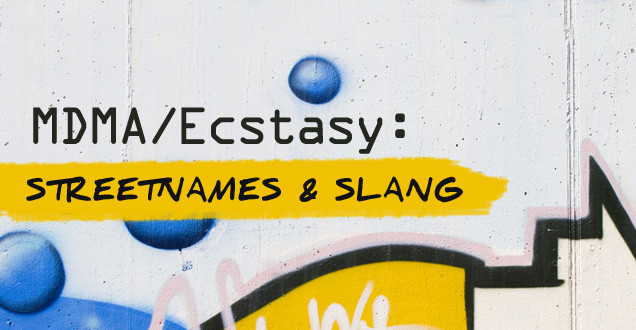Ecstasy, also known as MDMA or Molly, is a synthetic drug that has become increasingly prevalent, particularly within youth culture. Its stimulant and psychoactive properties create a false sense of euphoria, heightened energy, and distorted sensory perception, making it appealing in social settings like nightclubs, parties, and music events. Understanding the language associated with drug use is a crucial step for parents and educators to protect young people. Studies reveal a concerning trend: a significant percentage of teenagers experiment with illicit substances, with ecstasy being among them.
For parents, staying informed about their children’s lives, social circles, and potential influences is paramount. Recognizing the subtle signs of drug experimentation or addiction can facilitate timely intervention and support. Drug users often develop their own vocabulary to discuss substance use discreetly, using code words and slang terms to avoid detection. This guide aims to shed light on the cryptic language surrounding ecstasy, providing a comprehensive list of Street Names Of Ecstasy and related slang terms. By familiarizing yourself with these terms, you can become more attuned to your child’s conversations and potentially identify if they are at risk or engaging in drug use.
Common Street Names and Nicknames for Ecstasy (MDMA)
Ecstasy typically manifests as pills or tablets, often colorful and sometimes adorned with logos to enhance their appeal. “Molly,” often perceived as a purer form, is typically sold in powder or crystal form. Regardless of its presentation, the underlying dangers remain the same. Being aware of the various street names of ecstasy is the first step in understanding the coded language surrounding this drug. Here is an extensive list to help you decipher these terms:
- X, E, XTC
- Adam
- Beans
- Candy
- Dancing Shoes
- Disco Biscuits
- Doves
- E-bomb
- Egg Rolls
- Happy Pill
- Hug Drug
- Love Drug
- Malcolm, Malcolm X
- Molly
- Scooby Snacks
- Smarties
- Sweets
- Skittles
- Thizz
- Vitamin E, Vitamin X
- Vowels
 slang-streetnames-mdma-ecstasy
slang-streetnames-mdma-ecstasy
Slang Terms Associated with Ecstasy Use and Abuse
Beyond just names for the drug itself, there’s a whole vocabulary around using ecstasy. Teens might openly discuss “dropping” or “rolling” without realizing their parents understand these terms refer to drug consumption. Recognizing these phrases is just as important as knowing the street names of ecstasy pills themselves. Here are common slang terms indicating ecstasy use or describing someone under the influence:
- Drop, Double Drop (taking ecstasy, often referring to dosage)
- Thizzing (using ecstasy, often associated with a hyperactive state)
- Flip, Flipping (combining ecstasy with other drugs, often psychedelics)
- Roll, Rolling (being under the influence of ecstasy, experiencing its effects)
- Cuddle Puddle, E-Puddle (a group of people under the influence of ecstasy, often exhibiting heightened emotional closeness)
- E-tard (derogatory term for someone who frequently uses ecstasy and exhibits negative side effects)
- Raver, Raving (someone who attends raves and potentially uses ecstasy in that context)
Why Understanding Street Names of Ecstasy is Crucial for Parents
The statistics are sobering: a significant percentage of teens struggling with substance abuse do not receive the help they need. Early intervention is critical, and it begins with awareness. Understanding the street names of ecstasy and associated slang isn’t about invading your child’s privacy; it’s about equipping yourself with the knowledge to protect them.
If you suspect your teen might be experimenting with or using drugs, ignoring the signs can have serious consequences. Recognizing the language they use is a proactive step. Pay attention to conversations, text messages, and social media interactions. Are they using any of the terms listed above? This awareness can be the first indicator that something is amiss.
Talking to Your Teen About Drugs and Partying: Open Communication is Key
Discovering potential drug use can be frightening, but it’s essential to address the issue calmly and constructively. Drugfree.org highlights the alarming statistic that only a fraction of teens with substance abuse problems get treatment. Don’t let your child become another statistic.
If you suspect drug use, immediate action is necessary. Increased monitoring, clear rules, and consistent consequences are crucial first steps. However, the most vital action a parent can take is to acknowledge the possibility of a problem. Denial can be detrimental.
Open and honest communication is paramount. Create a safe space for your teen to talk about peer pressure, stress, and their experiences without fear of judgment. Educate them about the real dangers of ecstasy and other drugs, moving beyond scare tactics to factual information about the risks and long-term consequences.
Seeking Professional Help for Teen Ecstasy Abuse
Sometimes, parental intervention alone isn’t enough. If you believe your teen’s drug use is escalating or becoming unmanageable, seeking professional help is crucial. Substance abuse and addiction are complex issues often rooted in deeper underlying problems.
специализированные teen drug treatment centers, like Casa Palmera, offer tailored programs designed to address the unique challenges faced by adolescents. These centers understand that drug use is often a symptom of underlying emotional or psychological issues. Their skilled professionals are trained to uncover these root causes and guide teens towards healthier coping mechanisms and a path to recovery.
Casa Palmera provides a supportive environment where teens can address their substance use and co-occurring issues. Furthermore, their commitment extends beyond the initial treatment period with programs like Discovery365™, offering ongoing support during the critical early stages of recovery.
If you are concerned about your teen and suspect ecstasy or other drug use, don’t hesitate to seek help. Contacting a treatment center like Casa Palmera can be the first step towards a healthier and happier future for your child. Early intervention is key to preventing experimentation from turning into addiction.
Disclaimer: This blog post is for informational purposes only and does not constitute medical advice. Substance use disorders are complex, and individual situations vary. For specific health concerns or questions about substance use, please consult a healthcare professional.
